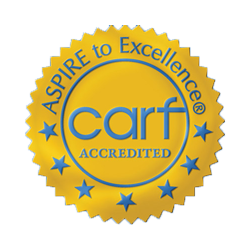Alcohol Treatment Center in Arizona
If you or a loved one are suffering from alcoholism, it’s time to take steps toward recovery. Renaissance Recovery Center is located in Gilbert, Arizona, and fosters healing from alcohol dependency with our day treatment, outpatient alcohol rehab, and family program. Most often, some or even all of your treatment is covered with medical insurance under mental health provisions.
Contact Our Alcohol Rehab In Gilbert, Arizona to Get Help Answering Any Questions Or Call (480) 526-7738 to Schedule a Free Assessment.

Click to jump to section:
90-Day Alcoholism Treatment Program
During the first 90 days of Alcohol addiction rehab, we outline a comprehensive plan that merges individualized counseling, family therapy, and group sessions to help those seeking recovery identify, address, and overcome the underlying issues related to alcohol use. Each alcohol treatment program is customized to meet the needs of the individual battling alcoholism. The treatment provides the crucial social and community resources to promote recovery. Alcoholism thrives in isolation, while recovery occurs in connection. The program runs three nights each week, with an emphasis on the following tenets.
- Personal Integrity: Rebuilding personal, internal honesty as a form of character building.
- Group Integrity: Small gatherings focus on overcoming denial and self-deception about addiction.
- Staff Integrity: The experienced professionals at Renaissance Recovery Center maintain the highest Faith-based integrity and sobriety.
Rehab for alcohol abuse works to heal the issues that lead to drinking and help the afflicted develop the tools and skills necessary for long-term sobriety. Many need more intensive therapy and alcohol counseling to motivate and empower recovery. Your individual alcohol treatment program may include 12 steps, SMART recovery, cognitive-behavioral, attachment, and motivational strategies, among others.
Alcohol Treatment Options at Renaissance Recovery Center
Our alcohol use disorder (AUD) outpatient treatment center offers multiple substance addiction treatment options, including gender-specific alternatives. These are sometimes completed in successive phases, beginning with an IOP program, whereas some clients will start with less intensive outpatient treatment:
Intensive Outpatient Treatment
The Renaissance Intensive Outpatient Treatment for AUD enables people to go on with their everyday lives while being engaged in a highly effective treatment program. They can continue living with their families, working, being with friends, and enjoying their usual recreational activities, all while doing the work to understand and overcome their addiction.
Therapies in the IOP alcoholism recovery program at Renaissance include a full range of treatment types. For example, recovery skill-building, cognitive behavioral therapy, family therapy, trauma and abuse survival, dual diagnosis and treatment, and many others are available.
The comprehensive AUD programs help people work through the self-damaging beliefs and thought patterns that have led to their addictive behaviors and consequences.
The Renaissance IOP program for alcohol abuse treatment involves:
- A 90-day treatment regimen
- 3 to 4 group therapy sessions each week
- 1 individual therapy session each week
- Additional individual sessions as needed
- Treatment session options:
- Mornings: Monday, Wednesday, Thursday, 10:00 am to 1:00 pm
- Evenings: Monday - Thursday, 6:00 to 9:00 pm
General Outpatient Substance Abuse Treatment (GOP)
General Outpatient Substance Abuse Treatment at Renaissance is the second phase of our alcoholism treatment program, often providing the follow-up regimen for clients who first complete the IOP program. This phase of treatment helps strengthen skills for maintaining the individual’s commitment to sobriety.
The GOP treatment program provides:
- A 90-day treatment regimen
- 3 to 4 group therapy sessions each week
- 1 individual therapy session each week
- Additional individual sessions as needed
- Treatment session options:
- Mornings: Monday, Wednesday, Thursday, 10:00 am to 1:00 pm OR
- Evenings: Monday - Thursday, 6:00 to 9:00 pm
Partial Hospitalization Program (PHP)
Our Partial Hospitalization Program (PHP) and Day Treatment for alcohol use disorder provide a higher daily care level than the IOP program. Clients often advance to a PHP treatment phase after completing inpatient or residential treatment.
This treatment option enables people to move from inpatient treatment more gradually than shifting directly to entirely outpatient therapy. In other cases, people use PHP day treatment instead of inpatient treatment. They may not need an inpatient or residential program, or there may be medical insurance issues, family needs, work demands, or other circumstances that make PHP the best option.
In PHP day treatment, people are engaged in the program throughout the daytime and live at home at night. PHP treatment provides continued therapeutic support to help participants integrate addiction recovery principles more fully throughout their daily lives.
The PHP option provides a more intensive alcoholism treatment program than the IOP program for alcoholism recovery and mental health, emotional, and social needs. Renaissance Recovery Center does not provide inpatient treatment in-house, but we can provide our clients with medical referrals for the inpatient treatment segment of their rehab program.
If you or a loved one needs help overcoming alcoholism now, contact Renaissance Recovery Center, Gilbert, AZ, for a prompt response today!
Aftercare Program
Once the initial 90-day alcohol addiction treatment program has been completed, an aftercare program may be recommended. Group sessions involve honing sobriety skills and feeling emotional support one time a week. This helps you to transition to living without a dependency on alcohol.
Ongoing Alumni Support
Fellowship stands as a defining factor in long-term alcohol rehabilitation. Our clinically-driven group sessions are available on an ongoing basis for alumni and new patients. Negative thoughts and emotions can be addictive forces. Joining our alcohol counseling community provides tangible experiences to help you succeed.
We provide referrals for:
- Medical alcohol detox
- Inpatient rehabilitation
- Pornography/Sex Addiction
- Eating disorders
- Grief and loss
- Chronic pain management
Risk Factors for Alcohol Addiction
Many teens may use alcohol, but alcohol addiction most often begins later, after age 20, or 30, or even later. Some common risk factors for alcohol addiction include:
- Drinking alcohol at a young age: When youths start drinking frequently or binge drinking, they develop a higher risk of alcohol addiction.
- Habitual drinking over time: Frequent excessive drinking can lead to alcohol abuse problems or alcohol addiction.
- Mental health issues: People with depression, bipolar disorder, anxiety, or other mental health problems are at higher risk of alcohol or other substance abuse disorders.
- Trauma history: Individuals with a history of experiencing emotional or other forms of trauma are at higher risk of AUD.
- Family history of alcoholism: People whose parent or another close family member has alcohol use disorder are at increased risk of AUD. The development of the disorder may have a genetic component.
- Cultural and social conditions: Immersion in a cultural or social environment in which people frequently drink alcohol increases the risk for the development of AUD. This is especially true for children and youths influenced by parents, other role models, and peers.
Outpatient Alcohol Rehab FAQ
Alcoholism is a progressive, chronic, and incurable illness afflicting 17 million adults and nearly 1 million adolescents between the ages of 12-17. If left untreated, alcohol use disorder can cause severe and negative consequences in the lives of addicts and their families. In some cases, alcohol abuse can even be fatal.
Not all alcoholics are the same. There are often misconceptions and stereotypes of an alcoholic. The term also carries a stigma; after all, who wants to be labeled as an alcoholic? While there are some chronic alcoholics who drink day and night, often descending into institutions and homelessness, most alcoholics are functioning in society, holding jobs, going to school, and raising families.
The following are major signs of alcohol use disorder:
- An obsession, preoccupation, or anticipation with opportunities to drink (i.e. Looking forward to 5 o’clock, or to the weekend to drink)
- Inability to control drinking. (i.e. Loss of control over how much alcohol one drinks, or lack of control/predictability regarding how long one can remain abstinent)
- Attempts to control drinking (i.e. Trying to limit one’s number of drinks, swearing off alcohol, only drinking at certain times, and switching from liquor to beer or wine)
- Repeated unsuccessful attempts to quit
- Continued use, despite negative consequences (i.e. Legal, financial, marriage/family, occupational, health, etc.)
- Others in your life (family, friends, co-workers) have commented on their alcohol use
- Health/medical issues related to alcohol use (i.e. Brain damage, liver disease, gastrointestinal problems, etc.)
- Experiencing blackouts, or memory loss, due to drinking
- Drinking and driving, or having a designated driver
- Higher tolerance (i.e. More alcohol is required to achieve the same effect)
- Withdrawal symptoms from alcohol (i.e. shaking, sweating, hallucinating, etc.)
- There are many varying types and patterns of alcohol use. Some experiment, or may drink recreationally or socially. Others become dependent or addicted.
Alcohol is one of the addictive substances known to man. As with other substances, alcohol use affects the areas of the brain associated with dopamine, a neurotransmitter controlling the brain’s reward and pleasure centers.
Those suffering from alcohol use disorder experience a defect in this system of the brain, causing cravings and compulsions to drink, which often override one’s sense of values, reason, and judgment. This is one reason some continue to drink, despite having suffered consequences related to the behavior. There are neurobiological forces in play, which diminish the ability to sufficiently access and affect memory in the parts of the brain which govern choice. For some, this phenomenon of craving can be overwhelming. It results in behavior which can be immoral, or even illegal; but fundamentally, the cause of alcohol use is more about biology than morality.
There are also aspects of emotional and psychological dependence related to alcohol use. For many, it becomes a coping mechanism. It can start as an unhealthy solution to life’s challenges; a solution that, for some, becomes a serious problem. For reasons beyond physiology, some become dependent upon alcohol to cope, manage, and survive. Even though alcohol use has caused negative consequences, the relief received from drinking can also create cravings and compulsions to drink. Others struggle with depression, anxiety, or other co-occurring issues. For those with dual diagnosis challenges, alcohol becomes a form of self-medication; even though it typically worsens the condition.
- Loss of control: This is the marker for when someone has crossed the line. Some can’t control how much they drink, once they start. Others can quit drinking for periods of time (whether for days, months or sometimes even years), but they invariably return to drinking; often in the most casual of ways. And then there are those who just can’t quit drinking...period.
- Cross addiction: It is not uncommon for cross-addiction to occur during periods of abstinence from alcohol. This involves substituting other substances or addictive behaviors (gambling, overeating, workaholism, etc.) for alcohol use.
- The ”Dry Drunk”: This is a term used to explain the condition alcohol users experience when not drinking. Oftentimes, during periods of abstinence, the person may continue to struggle mentally, emotionally, spiritually, and functionally. “Dry Drunk” describes the condition of struggling with the underlying causes of alcoholism without getting the relief from the substance. This is often characterized by anxiety, depression, sleeplessness, agitation, stress, irritability, etc.
Contact Renaissance Recovery Center in Gilbert, AZ for a FREE Alcohol Addiction Assessment
Renaissance Recovery Center in Gilbert, Arizona is a top rated outpatient treatment center for alcohol and substance abuse. Our experienced, trained team understands the need for engaged alcoholism treatment, including interventions, intensive therapy, and long-term support. Our compassionate approach extends beyond one-on-one therapy sessions and group discussions as a Gospel-oriented Arizona alcohol rehab center. We recognize that getting clean and sober is an important life choice, and we fully engage through Fellowship and spiritual well-being.
If you are experiencing Alcohol withdrawal symptoms, contact Renaissance Recovery Center and take the first step toward recovery. Give us a call at 480-526-7738 to Schedule a Free Alcohol Addiction Assessment.










